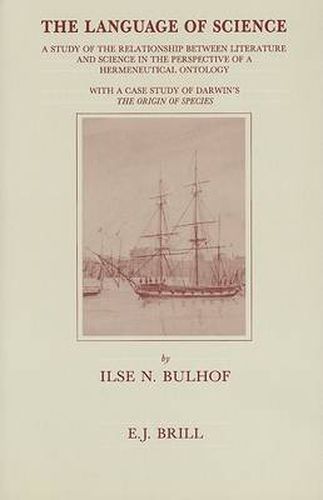Readings Newsletter
Become a Readings Member to make your shopping experience even easier.
Sign in or sign up for free!
You’re not far away from qualifying for FREE standard shipping within Australia
You’ve qualified for FREE standard shipping within Australia
The cart is loading…






The existence of a separation between science and literature has long been taken for granted. This study shows that in science language functions in very much the same way as in literature: it is rhetorical in that it persuades readers to the author’s point of view, and it is poetical in that with its metaphors and the figures of speech it shapes the experience of author and reader. The separation between science and literature proves to be untenable. This has important ontological implications: science can no longer be considered an action performed by a speaking subject on a mute object. Does the creative role of language in science mean that human beings create the world? The author emphatically rejects a conclusion which would degrade nature to mere malleable material at the mercy of human beings. A hermeneutical model for the relationship between knower and known is suggested: creative interaction between reader and text. The reader’s responses actualize a text’s meaning; in like manner, scientists give their response to reality by actualizing one of many possibilities. The hermeneutical ontology proposed in this book steers away from the rocks of realism and anti-realism.
$9.00 standard shipping within Australia
FREE standard shipping within Australia for orders over $100.00
Express & International shipping calculated at checkout
The existence of a separation between science and literature has long been taken for granted. This study shows that in science language functions in very much the same way as in literature: it is rhetorical in that it persuades readers to the author’s point of view, and it is poetical in that with its metaphors and the figures of speech it shapes the experience of author and reader. The separation between science and literature proves to be untenable. This has important ontological implications: science can no longer be considered an action performed by a speaking subject on a mute object. Does the creative role of language in science mean that human beings create the world? The author emphatically rejects a conclusion which would degrade nature to mere malleable material at the mercy of human beings. A hermeneutical model for the relationship between knower and known is suggested: creative interaction between reader and text. The reader’s responses actualize a text’s meaning; in like manner, scientists give their response to reality by actualizing one of many possibilities. The hermeneutical ontology proposed in this book steers away from the rocks of realism and anti-realism.